Be reborn every day
(Igino Giordani, Christmas as a revolution, New City, Rome 1974, n.24, p.18)
(Igino Giordani, Christmas as a revolution, New City, Rome 1974, n.24, p.18)
The conference “European Solidarity Corps and Civil Service in Europe” which took place on 24th October 2023 in Brussels (Belgium) expressed a commitment of politicians, institutions, ecclesial movements, organisations of civil society and, at the forefront, young people. Jesús Morán, Co-President of the Focolare Movement, was present at the meeting and shares his impressions. On Tuesday 24th October Brussels was unexpectedly sunny, in contrast with what we experienced on the afternoon of the 23rd, when we arrived in the Belgian capital and were greeted by heavy rain. For the inhabitants of Brussels, who are citizens of several European countries, the sight of a bright sun was a surprise in the middle of autumn. For us it was a good sign of what we would live that morning in the impressive European Parliament building. The meeting held in a seminar room for 30 people began at 9.15 a.m. It was promoted by three very different associations: the European Movement, the Caterinati Association and the Focolare Movement, within the framework of the European Solidarity Corps (ESC), which is an initiative of the European Commission which brings together parliamentarians of all political sectors, thanks to its value-based and constructive background. The event was also a tribute to and in remembrance of David Sassoli – President of the European Parliament who died on 11th January 2022. I was participating for the second time in an event like this. The first one was before the pandemic and was held at the European Parliament in Rome. Providentially just as we were starting the session, the European Parliament’s Committee on Culture approved almost unanimously the report on the activities of the European Solidarity Corps (ESC) for the period 2021-2027. The Focolare Movement was represented not only by myself, as co-president, but also by members of the Political Movement for Unity, New Humanity (represented by three young people) and the ‘Focolare for Europe’, which is based in the city of Brussels and interacts with many people from the European institutions. It also welcomes immigrants and promotes activities in favour of dialogue and the sharing of ideals. I will not speak about the details of the event, which you can read in the various press releases that have been issued in recent days. Instead, I would like to emphasize the enormous importance of these events which are seemingly minor and for few people. They can instead mark a change of direction in international relations and in the dynamics of the social structuring of nations and peoples. These events can offer Europe a different image, one that is more in line with the idea of the founding fathers of the Union than with what we are used to seeing, especially today. They can offer Europe an image that is more consistent with its true identity, founded on values that have undoubtedly Greco-Latin and Christian roots, such as solidarity, openness, tolerance, communion, democracy, transcendency, freedom, fraternity and peace. It is also extremely significant that in initiatives like the ESC young people as are protagonists. They are the ones who will bring about the paradigm shift we are all hoping for. The more than 300,000 young people who have participated in the programme of solidarity of the Commission over the years demonstrate that these are the aims for which they are willing to use all of their intellectual and moral energies. Young people will not draw back if we offer them high goals and we make their journey easier. At this tragic time in the world, hope comes from them and from their desire for change. Young people, who have solidarity in their DNA, can stop the drift of misunderstanding, polarisation, hatred and violence that is plaguing the world. With initiatives like this, these young people create culture – high culture – because they not only work for the most worthwhile causes, but they also build new relationships, share experiences and traditions, and are enriched by their diversity. At the end of the meeting there was a special joy in all the participants, something that isn’t a foregone conclusion, especially among parliamentarians, who are used to endless confrontations and sometimes ruthless power struggles. As we left Brussels, travelling towards the airport, we felt that the sun will melt the mist in our hearts if we are a little more generous and give value to what is really worthwhile. That alone makes everything more beautiful, even this magnificent city.
Jesùs Moran
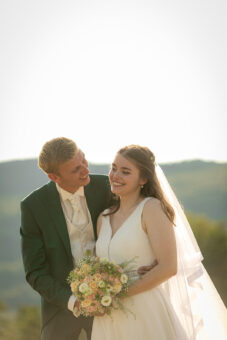
Benoît and Chloé Mondou, a young couple from France, decided to start their married life by taking part in the World Youth Day in Lisbon (Portugal).
 “Initially we thought our honeymoon would be a tour of Europe, but when the opportunity to go to WYD came up, we didn’t hesitate for a single second!” Benoît and Chloé Mondou were married in Haute-Savoie (France), a week before World Youth Day in Lisbon (Portugal). He is twenty-four years old and she is twenty-two. They met seven years ago in the scout group of which they are active members. Today they are volunteer guides. Benoît has known the spirituality of the Focolare since he was a child and, through him, Chloé began to live it too. They set off for Lisbon with a group of young people from the French speaking countries of the Movement: France, Belgium and Switzerland. They said, “We didn’t give up the trip to Europe but we thought that it was really important to go to the WYD. Now we can say that it put down an important marker for our marriage”.
“Initially we thought our honeymoon would be a tour of Europe, but when the opportunity to go to WYD came up, we didn’t hesitate for a single second!” Benoît and Chloé Mondou were married in Haute-Savoie (France), a week before World Youth Day in Lisbon (Portugal). He is twenty-four years old and she is twenty-two. They met seven years ago in the scout group of which they are active members. Today they are volunteer guides. Benoît has known the spirituality of the Focolare since he was a child and, through him, Chloé began to live it too. They set off for Lisbon with a group of young people from the French speaking countries of the Movement: France, Belgium and Switzerland. They said, “We didn’t give up the trip to Europe but we thought that it was really important to go to the WYD. Now we can say that it put down an important marker for our marriage”.
In their home town, Benoît and Chloé are also involved in a social project in which they visit people in nursing homes. Chloé said, “We are lucky to have been brought up in the same religion but we are also fortunate that we like praying together. For this reason, taking part in the WYD has given an even greater dimension to the faith we both have. During the WYD, there were times when we were separated, but then we met for praise or adoration and so we had those moments to pray together”. Benoît continued, “It was very strong because in normally in daily life we don’t really have the opportunity to pray together. In Lisbon taking time together, even if you were in a group, was strong. Personally, I think it’s an experience you should have at least once in your life. And if you can do it as a couple, even better”.
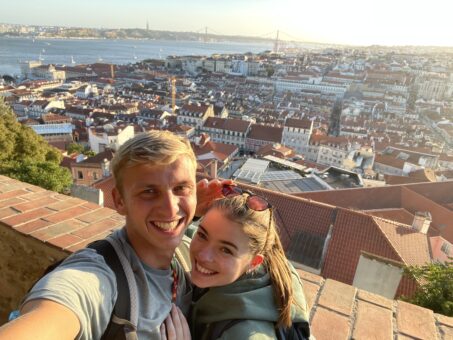 The moments with Pope Francis were fundamental. Chloé said, “For me the most important thing that the Pope said was when he reminded us that we are all loved, each person as they are, because when you are part of a group, sometimes you tend to create your own personality to stand out, to be accepted. But in places like that you realize that this is how we really live with each other, this is how we are natural and this is how God loves us more.”
The moments with Pope Francis were fundamental. Chloé said, “For me the most important thing that the Pope said was when he reminded us that we are all loved, each person as they are, because when you are part of a group, sometimes you tend to create your own personality to stand out, to be accepted. But in places like that you realize that this is how we really live with each other, this is how we are natural and this is how God loves us more.”
Benoît continues, “From the words of the Pope I feel I am taking up a challenge that is close to my heart: to try to be Jesus. The Pope invited the one and a half million young people who were in Lisbon to return to our countries, to spread the good news, to help others and to bring others ahead with the word of Christ. “
Chloé reflected “At the WYD I discovered a new way of living my faith. I realized that there are many different ways to live faith and it doesn’t matter if one person goes to sing in the street and another prefers to be alone at the back of a church. In a family, everyone has to find their own place and their own way of praying”.
Benoît concluded, “We left Portugal with greater faith. This experience increased the desire, which we already had, to raise our children in the faith and to educate them in the Gospel. After our wedding in the Church, we needed this WYD, this pilgrimage, recollection and prayer. It was really good for us”.
Anna Lisa Innocenti
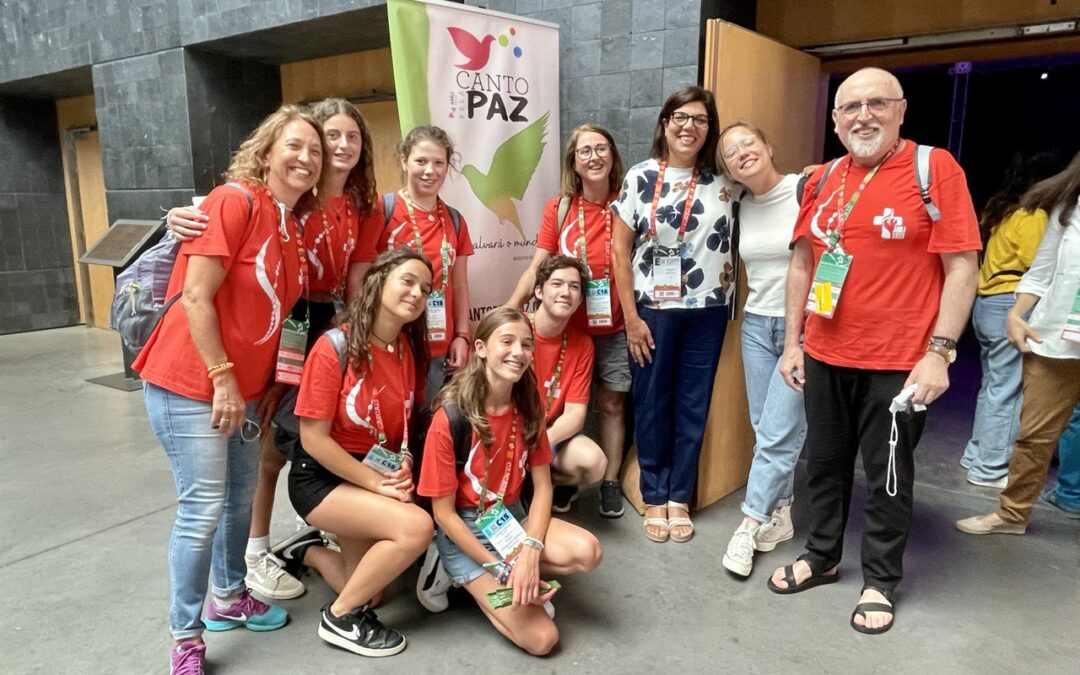
These were Pope Francis’ final words as he said goodbye to the young people and all the participants at the concluding Mass of World Youth Day 2023.
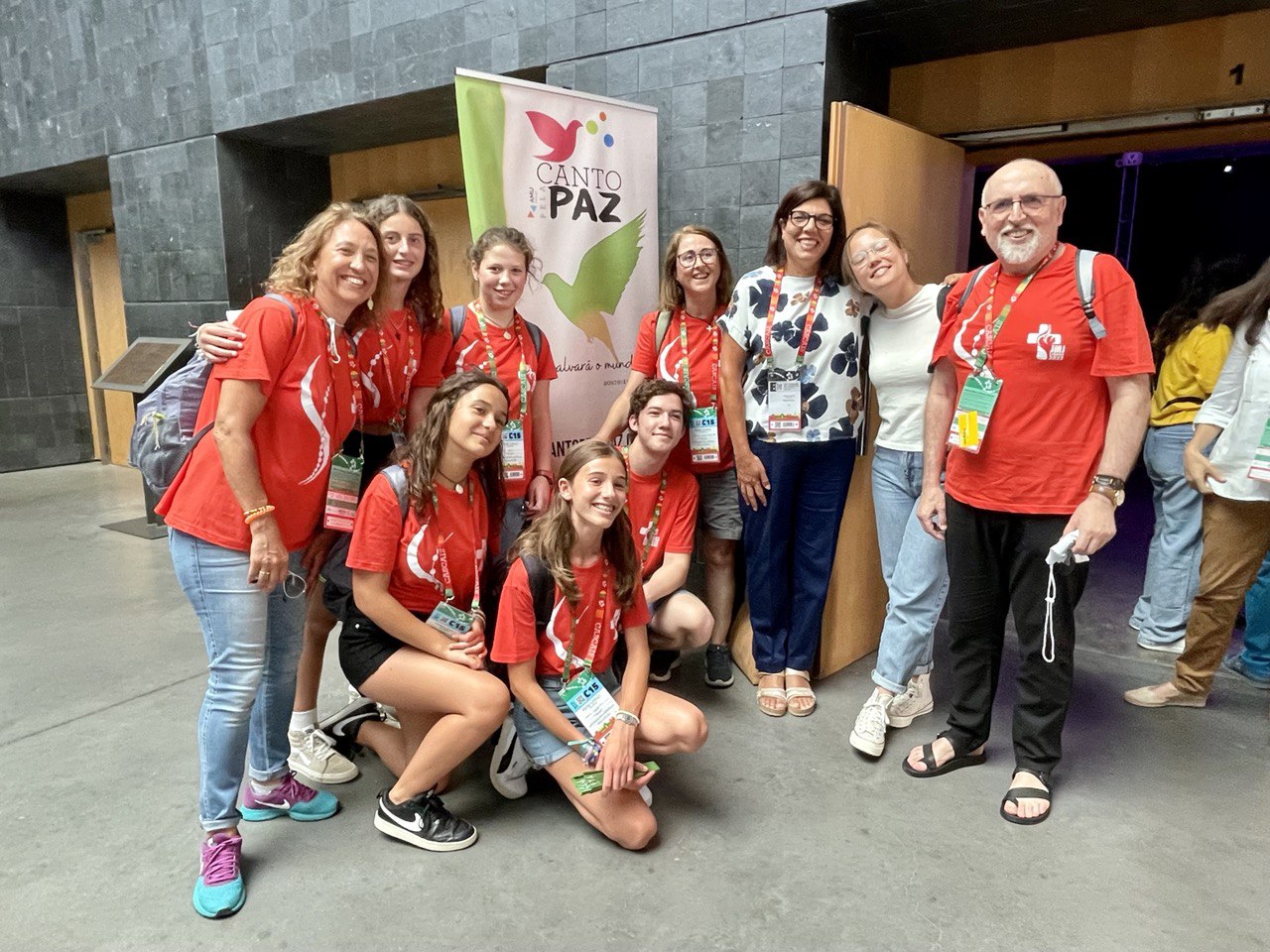 It is difficult to describe what we experienced during these unforgettable days of grace. I know it is a cliché to say that you have to experience it to understand it. But it is true! It is certainly true on this occasion. I have participated in four WYDs, the first two and the last two, and I can testify that there is something about these days that cannot be explained. A well-known Portuguese public figure, who is agnostic and a cinema lover, wrote in a newspaper article that what he contemplated on the streets of Lisbon in this scorching summer was the most beautiful film he had ever seen. It was impossible not to be uplifted by the cheerfulness and liveliness poured out in torrents by the young people who had come to the ‘city of light’ and who filled it with the other light they carried within themselves. We saw them everywhere, in the shopping malls, in the metro, on the buses, in the bars, in the parks or on the roads. They gathered in small and large groups, and were like multi-coloured, loud, talkative, multi-charismatic human rivers, with a kindliness that warmed the heart. Walking among them, I saw the inhabitants of the city; some were puzzled, some interested. If Lisbon, with its magical and indescribable beauty, was a gift for these young people, they were no less a gift for this city, which will be proud to have seen one and a half million young people come together to celebrate their faith in Christ, something previously unheard of.
It is difficult to describe what we experienced during these unforgettable days of grace. I know it is a cliché to say that you have to experience it to understand it. But it is true! It is certainly true on this occasion. I have participated in four WYDs, the first two and the last two, and I can testify that there is something about these days that cannot be explained. A well-known Portuguese public figure, who is agnostic and a cinema lover, wrote in a newspaper article that what he contemplated on the streets of Lisbon in this scorching summer was the most beautiful film he had ever seen. It was impossible not to be uplifted by the cheerfulness and liveliness poured out in torrents by the young people who had come to the ‘city of light’ and who filled it with the other light they carried within themselves. We saw them everywhere, in the shopping malls, in the metro, on the buses, in the bars, in the parks or on the roads. They gathered in small and large groups, and were like multi-coloured, loud, talkative, multi-charismatic human rivers, with a kindliness that warmed the heart. Walking among them, I saw the inhabitants of the city; some were puzzled, some interested. If Lisbon, with its magical and indescribable beauty, was a gift for these young people, they were no less a gift for this city, which will be proud to have seen one and a half million young people come together to celebrate their faith in Christ, something previously unheard of.
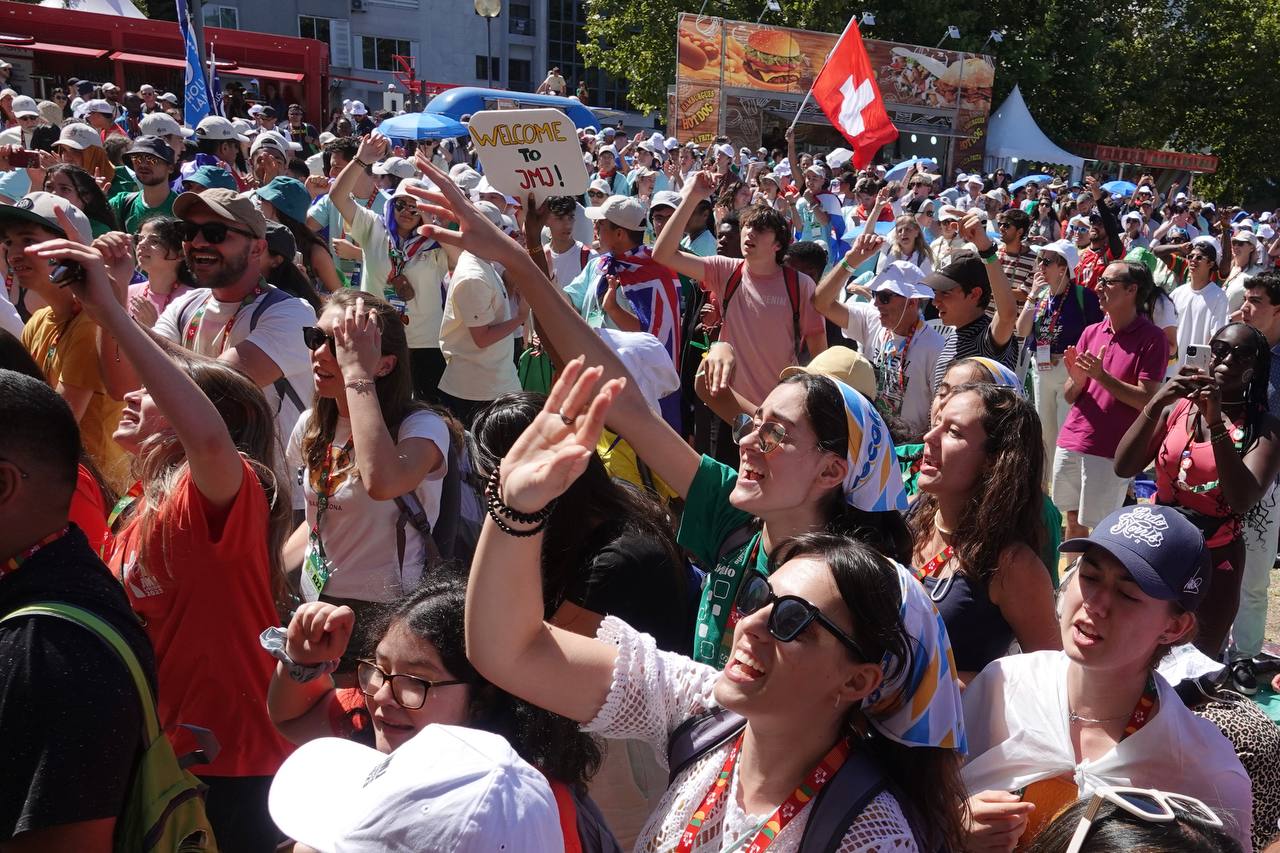 The Portuguese Church and the Dicastery for the Laity, Family and Life, the organisers of the event, together with the city and its civil authorities, did an amazing job. But there is no doubt that the prize goes to the young people. Who could have imagined this happening after three years of a serious pandemic and in the midst of an institutional crisis, such as the one the Catholic Church is going through because of abuses of various kinds?! Even though today the Spanish press gave coverage to the case of a girl with 5% visual capacity who claims to have recovered her sight in the past few days, for me the real miracle was the living faith of these young people, expressed in their own words and with a multitude of bold and even disconcerting gestures.
The Portuguese Church and the Dicastery for the Laity, Family and Life, the organisers of the event, together with the city and its civil authorities, did an amazing job. But there is no doubt that the prize goes to the young people. Who could have imagined this happening after three years of a serious pandemic and in the midst of an institutional crisis, such as the one the Catholic Church is going through because of abuses of various kinds?! Even though today the Spanish press gave coverage to the case of a girl with 5% visual capacity who claims to have recovered her sight in the past few days, for me the real miracle was the living faith of these young people, expressed in their own words and with a multitude of bold and even disconcerting gestures.
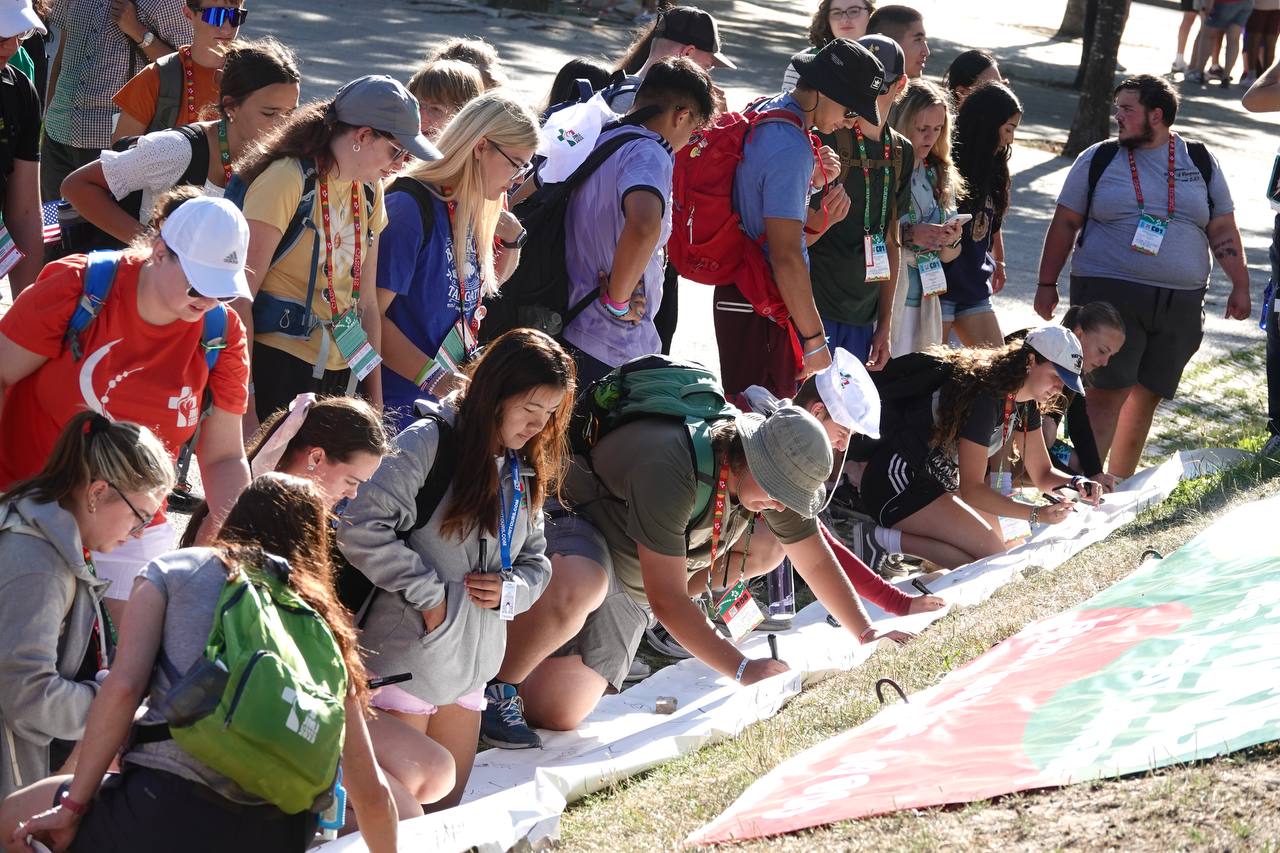 In fact, while they showed an overflowing enthusiasm by singing and dancing, the most emblematic moment – indeed the real centrepiece of the event – was once again the Eucharistic adoration at the vigil: more than a million people knelt down without anyone telling them to do so, to adore in ‘deafening’ silence the One they consider the ‘heart of the world’! It was impossible not to be moved. And at that moment, the fado given to us by the singer Carminho gave us goosebumps: ‘You are the star that guides my heart/ You are the star that has lit my path/ You are the sign that I guide destiny/ You are the star, and I am the pilgrim’. And one wonders at the power of attraction that a small host can exert on such a large crowd of young people spread over a field over three kilometres long (100 football pitches).
In fact, while they showed an overflowing enthusiasm by singing and dancing, the most emblematic moment – indeed the real centrepiece of the event – was once again the Eucharistic adoration at the vigil: more than a million people knelt down without anyone telling them to do so, to adore in ‘deafening’ silence the One they consider the ‘heart of the world’! It was impossible not to be moved. And at that moment, the fado given to us by the singer Carminho gave us goosebumps: ‘You are the star that guides my heart/ You are the star that has lit my path/ You are the sign that I guide destiny/ You are the star, and I am the pilgrim’. And one wonders at the power of attraction that a small host can exert on such a large crowd of young people spread over a field over three kilometres long (100 football pitches).
You might think that the young people who gathered in Lisbon are good people, with an orderly life, polite young people, who do not get involved with other people’s problems. Nothing could be more mistaken. An international group of young people toiled for years to come up with an artistic framework of extraordinary beauty and visual effectiveness. They constructed a huge stage, a kind of giant scaffolding on which they moved around in an ethereal manner, letting themselves fall while securely tied to ropes, and carrying the cross from side to side, up and down. The feeling of vertigo was continuous, and the choice of this approach was not accidental: at each station, with a few words of reflection and a lot of visual impact, the ‘vertigo’ that imbues the lives of young people today was crudely expressed: addictions, lack of meaning, an uncertain future, contempt for life, toxic relationships. All motifs that the cross bore, or rather, that the crucified one bore on his shoulders, to be transfigured into new life.
Of course, the key moments of this WYD, as of the previous ones, were the meetings with the Pope. Another puzzling and characteristic feature of these events: why do young people love the popes so much, regardless of their (the popes) character, be it traditional, intellectual or reformist?
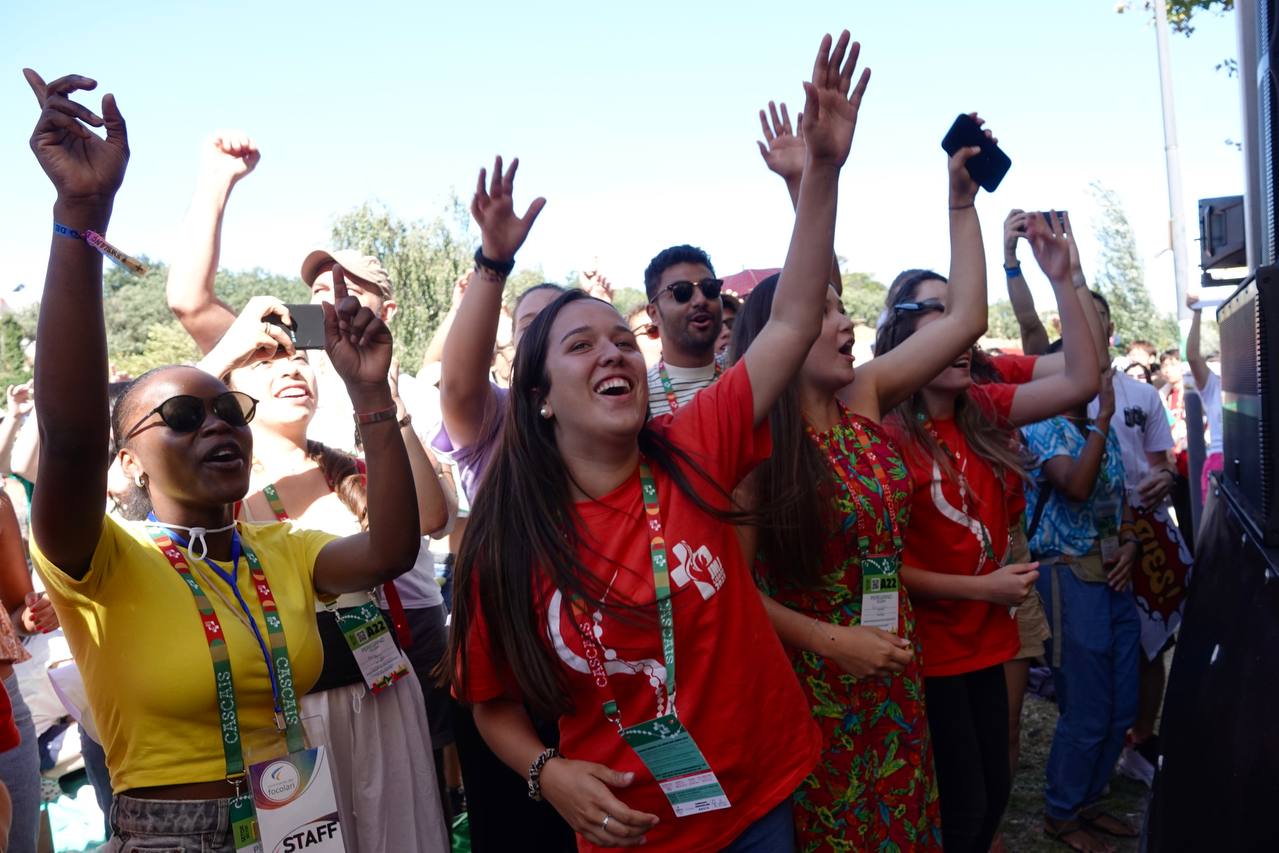 Apart from these highlights, the programme was filled with many other smaller events, but which were no less significant, such as concerts in key city locations, meetings in nationalities, sharing with people involved in the Church in parishes or associations and above all the various catecheses led by the young people themselves with bishops from different parts of the world as keynote speakers. These were all opportunities to deepen the WYD motto: Rise up.
Apart from these highlights, the programme was filled with many other smaller events, but which were no less significant, such as concerts in key city locations, meetings in nationalities, sharing with people involved in the Church in parishes or associations and above all the various catecheses led by the young people themselves with bishops from different parts of the world as keynote speakers. These were all opportunities to deepen the WYD motto: Rise up.
“Have no fear, take heart, do not be afraid!” Pope Francis seemed to be speaking to the whole Church with these words. For there is no doubt that courage is needed and in this, young people are called to be in the front line. They are the present and the future of a Church renewed by the Spirit.
A Church that, as Francis has repeated several times, desires to be a home for all, without excluding anyone, and to recover the prophetic drive that permeates it. This Church walks with new confidence, the confidence it finds in itself and beyond itself, in Jesus Christ. A Church that desires to give hospitality to all humanity in the resurrected humanity of Jesus of Nazareth, as a well-known theologian says.
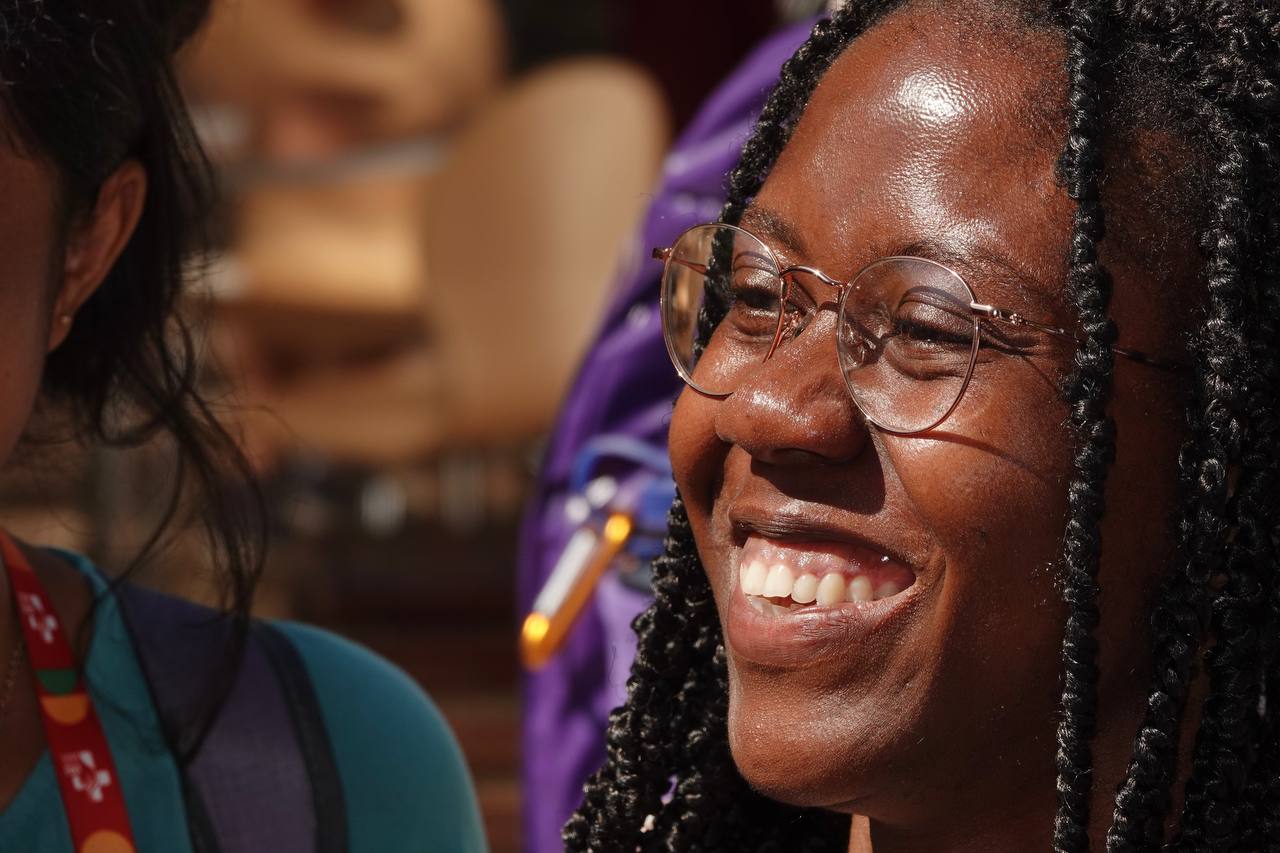 Perhaps I am too optimistic, but in these few days I have seen a young Church that has already gone a bit beyond the time of trial or is at least confident about overcoming it. The thousands and thousands of young people I met in Lisbon taught me this.
Perhaps I am too optimistic, but in these few days I have seen a young Church that has already gone a bit beyond the time of trial or is at least confident about overcoming it. The thousands and thousands of young people I met in Lisbon taught me this.
They don’t create problems; they do not become fossilised in criticism. Far from it, something (their purity, perhaps, refined in pain and uncertainty) leads them to focus on the core of faith with simple hearts. And, as the Master says, theirs is the Kingdom of Heaven (cf. Mt 5:1-12).
Three images summarise everything I want to express in this article: young people on the move, all over Lisbon (a symbol of the world), sometimes exhausted by the heat and tiredness accumulated after nights of little sleep. Young people with the ‘vertigo’ of the cross on their shoulders, on which all their sufferings are written. Young people kneeling in adoration, aware that in a piece of bread there is all of life, a life that does not pass away. The living Church, the Church of always, the Church of today, the Church of the future.
Jesús Morán
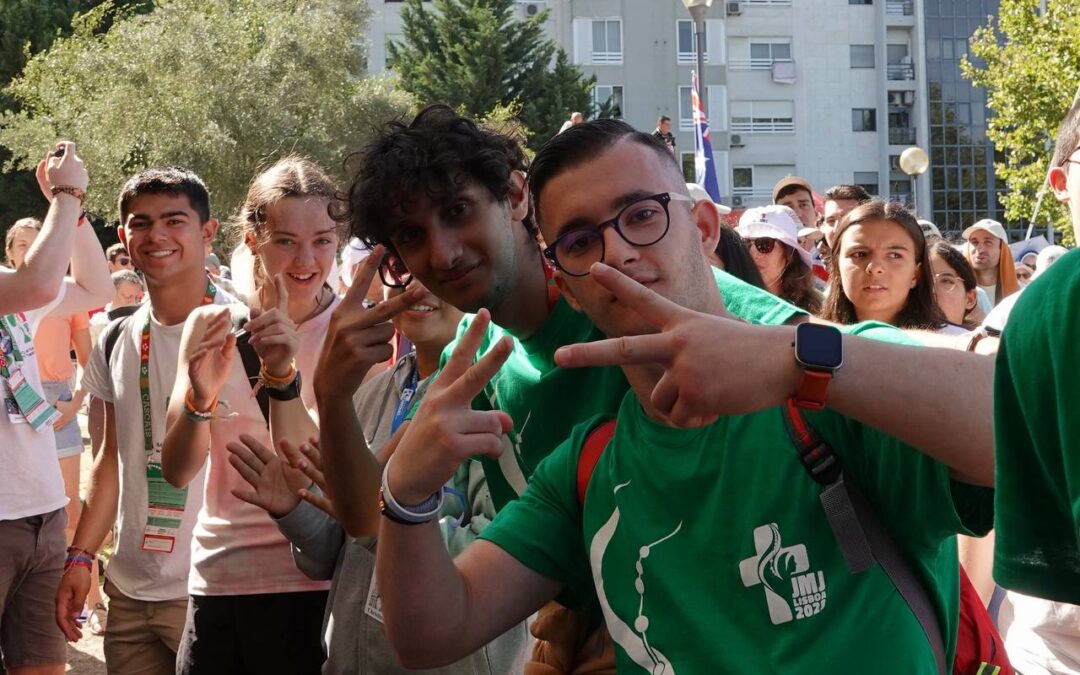
The young people who have been getting ready for the WYD for some time are excited to meet Pope Francis. In these first few days in Lisbon (Portugal), they took part in the “Rise Up” meetings.
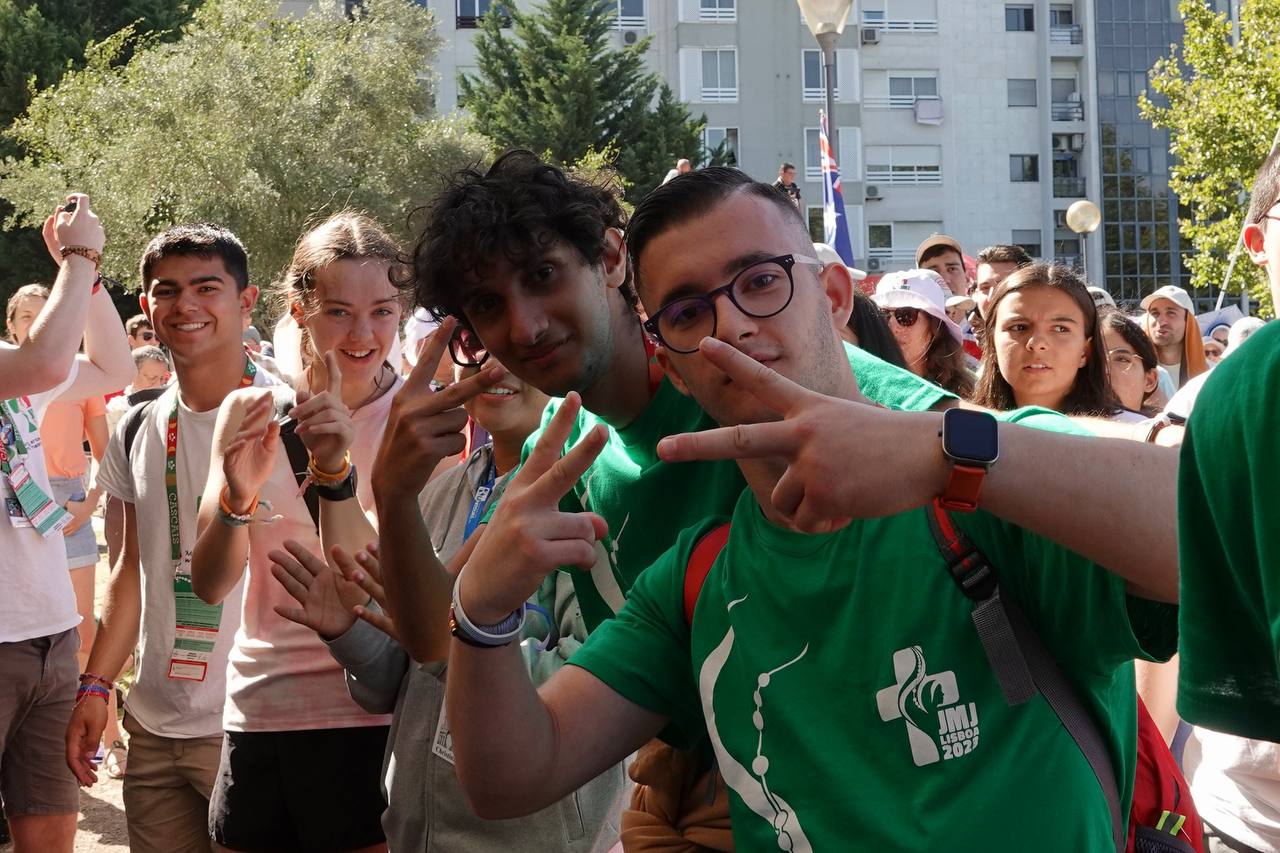 As the time of writing, the XXXVIII World Youth Day has just reached its halfway point. The first 4, very intense days, have permeated the life of over half a million young people who welcomed Pope Francis on 3rd August 2023 in the heart of Lisbon (Portugal). They gathered at Parque Eduardo VII, which was renamed “Hill of Encounter”, as a sign of the profound significance of this WYD, which underlines: relationship with God, with oneself and then with others, to build a peaceful, sustainable and fraternal world.
As the time of writing, the XXXVIII World Youth Day has just reached its halfway point. The first 4, very intense days, have permeated the life of over half a million young people who welcomed Pope Francis on 3rd August 2023 in the heart of Lisbon (Portugal). They gathered at Parque Eduardo VII, which was renamed “Hill of Encounter”, as a sign of the profound significance of this WYD, which underlines: relationship with God, with oneself and then with others, to build a peaceful, sustainable and fraternal world.
With the cry of “God loves everyone”, in a Church where there is room for everyone, Francis officially inaugurated the Portuguese World Youth Day which the media is amply covering every day.
However, what risks being overlooked is the important work of updating that the Church, in the most universal sense of the term, has carried out, so that this World Day could be a place where young people “find themselves” in their questions, in their conscious or unconscious search for God to have him as a partner in their lives; in the creation of spaces for sharing, inspiration and mutual listening. This process has involved young people, their teachers, priests and bishops, and many ecclesial realities.
“Rise Up” Meetings: spaces to think, share and be inspired
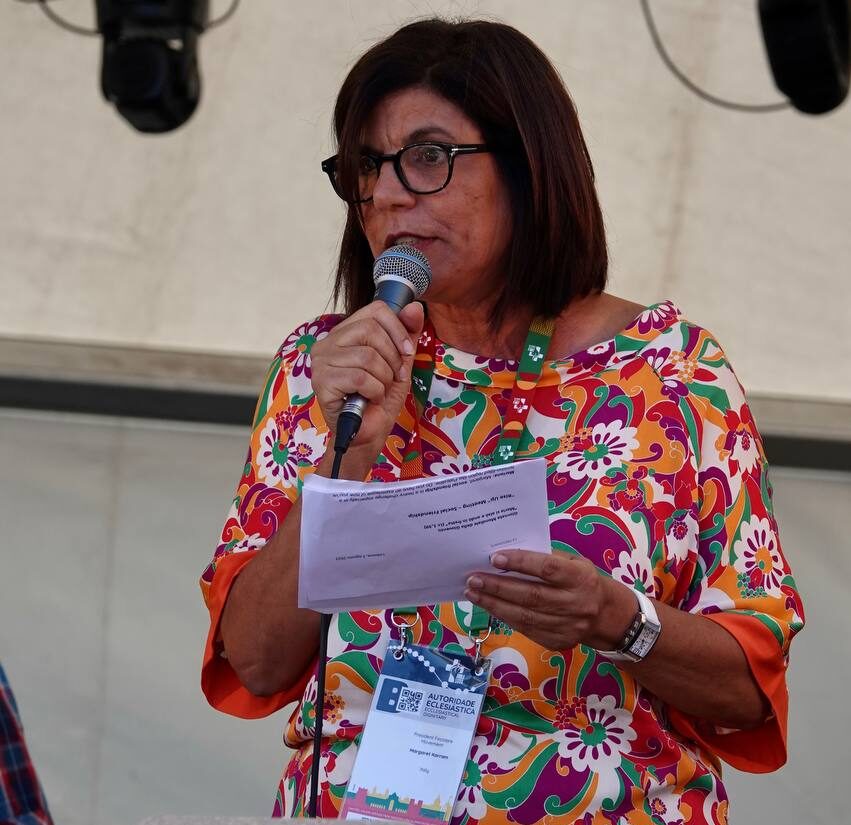
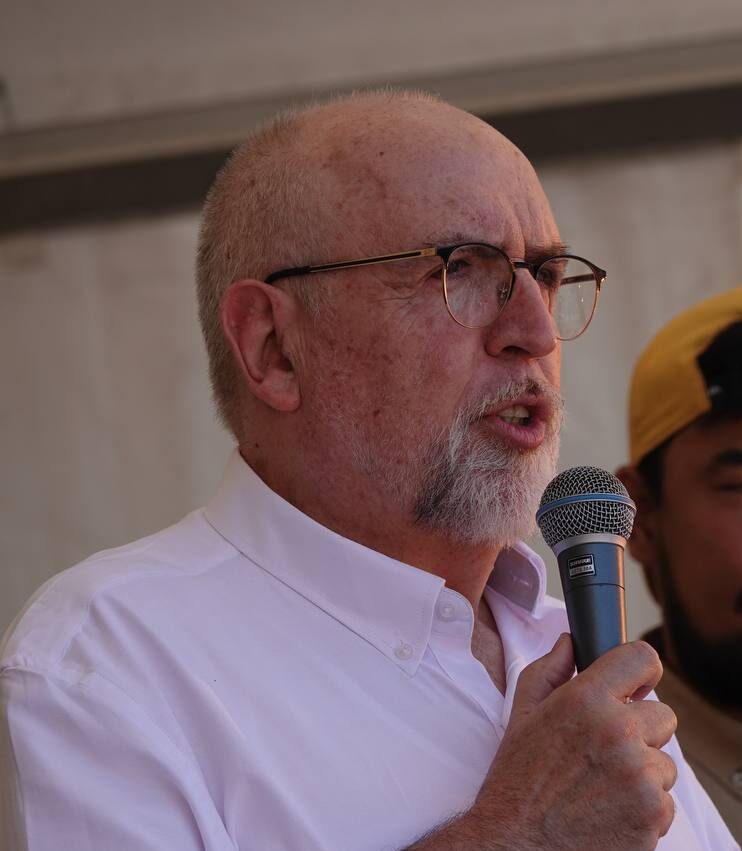 Undoubtedly one of the biggest novelties of this WYD are the “Rise Up” meetings, the new model of catechesis which invites the young people to reflect on the major themes addressed during the pontificate of Pope Francis: integral ecology, social friendship and universal brotherhood, mercy.
Undoubtedly one of the biggest novelties of this WYD are the “Rise Up” meetings, the new model of catechesis which invites the young people to reflect on the major themes addressed during the pontificate of Pope Francis: integral ecology, social friendship and universal brotherhood, mercy.
There are 270 meetings held in 30 languages which are all linked to the general theme of the WYD: “”Mary arose and went with haste” (Lk 1:39).
The Focolare Movement has been involved in the Rise Up meetings, offering 3 half-day appointments for English-speaking pilgrims, attended by an average of 5,000 young people a day. Eunice, a member of the organizing team told us, “I immediately felt responsible. The theme of this WYD inspires me a lot: I too feel driven to get up and go quickly, like Mary; I feel a strong motivation to give more, to overcome limits, tiredness and difficulties, as she did when she went to visit Elisabeth. She didn’t stop, but she loved”. Margaret Karram and Jesús Morán, President and Co-President of the Focolare, shared the stage with Card. Patrick O’Malley from Boston (USA), Archbishop Anthony Fisher from Sydney (Australia) and Bishop Robert Barron from Winona- Rochester in Minnesota (USA).
Teenagers at the WYD in Lisbon
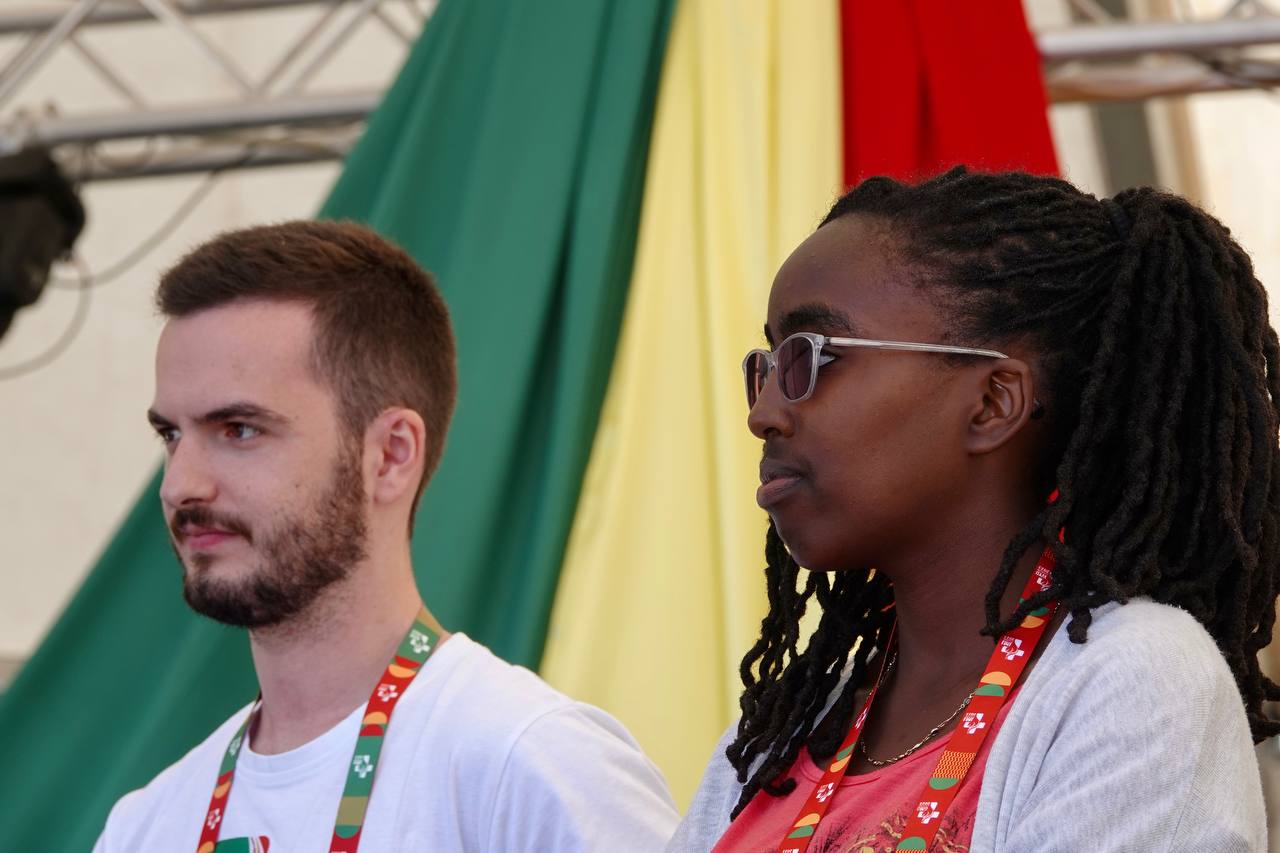 Experiencing God’s love and taking it wherever you are or feel called to be, was the thread running through the meetings enlivened by music, prayer and a lot of sharing. Pete, from the United States, at his first WYD, said, “I felt that after a year and a half of ‘isolation’, after Covid, something in me had changed. I decided to get involved and come with my diocese. I wanted to get out of my comfort zone, meet young people from other countries, see how they deal with problems. I still have many questions, I have found some answers here”.
Experiencing God’s love and taking it wherever you are or feel called to be, was the thread running through the meetings enlivened by music, prayer and a lot of sharing. Pete, from the United States, at his first WYD, said, “I felt that after a year and a half of ‘isolation’, after Covid, something in me had changed. I decided to get involved and come with my diocese. I wanted to get out of my comfort zone, meet young people from other countries, see how they deal with problems. I still have many questions, I have found some answers here”.
For the young people from Slovakia it was a big decision to come and open up to people of other cultures and ways of doing things. They are greatly looking forward to what the Pope will say in the coming days. “We are sure that his words will remain in our hearts forever and will help us in the different situations of life”.
This meeting one another, recognizing each other as brothers and sisters is perhaps the most characteristic feature of this event. This is why personal stories are central to the Rise Up meetings.
Real life at the Centre of it all
For example, Lucas, who lives in the Brazilian Amazon. At the WYD in Panama he was captivated by the person of Jesus. When he went home, with about twenty young people he got involved in a project to help the indigenous communities of his country. They spent a fortnight with a team of doctors, nurses and psychologists who bring aid, treatment and support to many people who live far from treatment centres. Lucas said, “It was an incredible experience: giving myself from morning to night, without stopping. The Amazon Project has made me grow a lot as a person. The first result of all this is me: I have changed, I am no longer the same”.
Sofia, from Argentina, talked about her existential journey of searching for meaning. At one point she heard about Blessed Chiara Luce Badano whose yes to God, even in her pain, gave her the strength to dedicate her life to God, following the spirituality of the Focolare Movement.
And we could go on and on because we heard many testimonies and also the responses of the bishops and leaders to the questions of the young people.
Pat, aged 19, from Sydney, said, “I came to this WYD with a group of friends and this is important to me because I believe that we need others in order to be able to make a difference in the world and even to make personal decisions. Loneliness is a challenge for many young people of my age and I want to do something about it by starting with loving my friends. I understood here that this is the right path”.
These young people have many questions and also fears, but there’s more: they want to open up, to learn; they come from very different backgrounds and experiences, yet they are all here to meet Pope Francis, to discover God in their lives and to meet friends with whom to share this discovery. This is the essence of the WYD in Lisbon.
Stefania Tanesini
To read the full speeches:
Margaret Karram, Catechesis of 2nd August 2023, Rise up meeting, WYD Lisbon (Portugal)
Jesús Morán, Catechesis of 2nd August 2023, Rise up meeting, WYD Lisbon (Portugal)
Margaret Karram, Catechesis of 3rd August 2023, Rise up meeting, WYD Lisbon (Portugal)
Jesús Morán, Catechesis of 3rd August 2023, Rise up meeting, WYD Lisbon (Portugal)